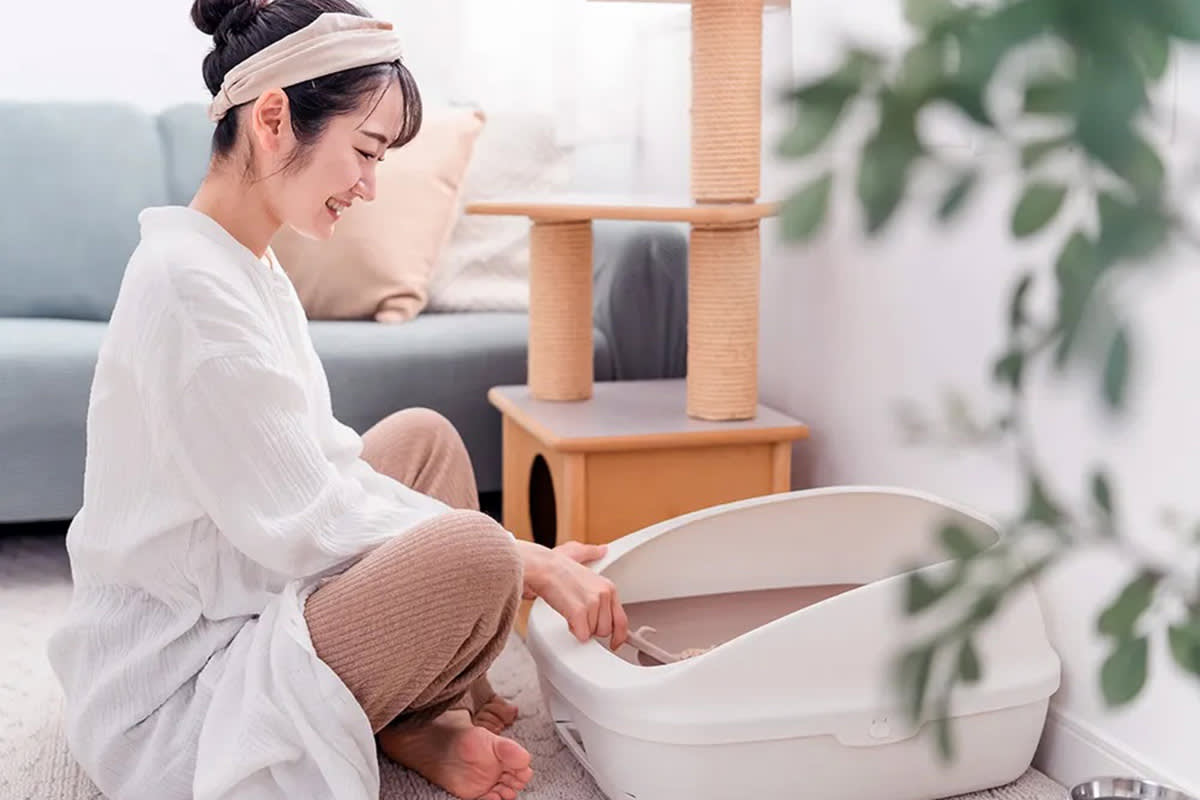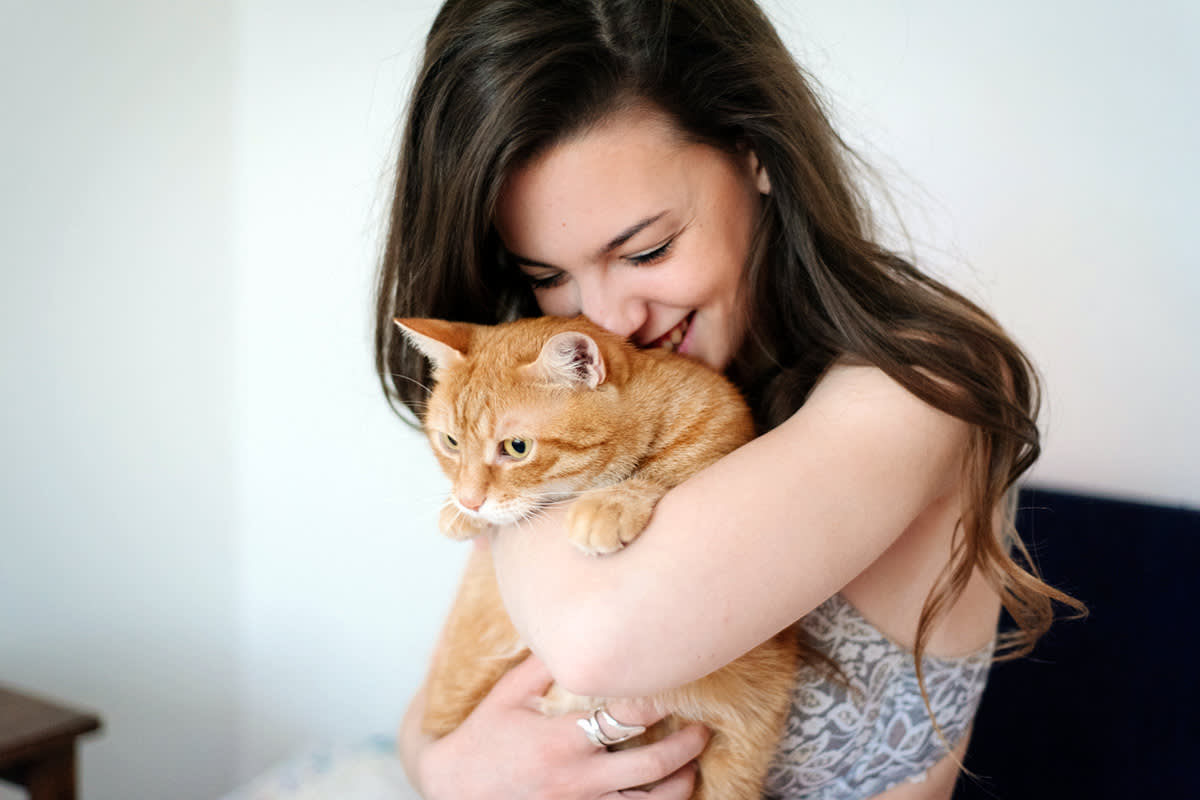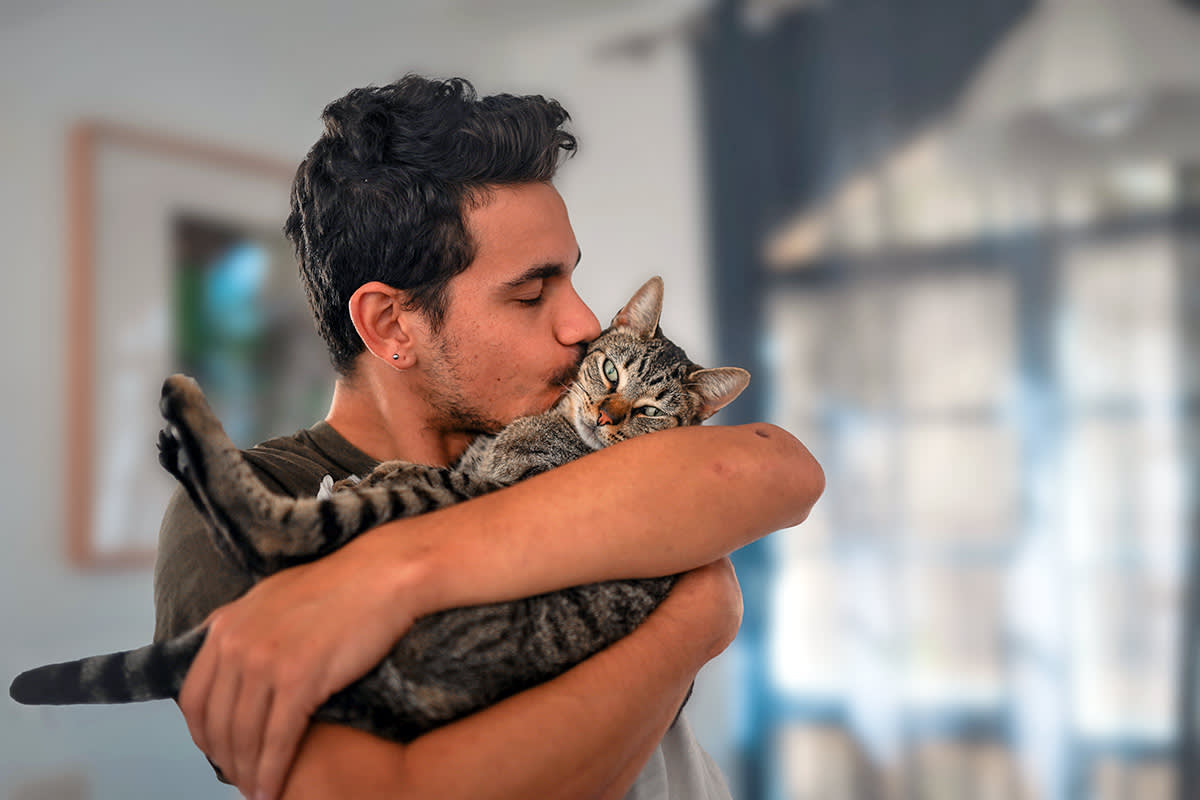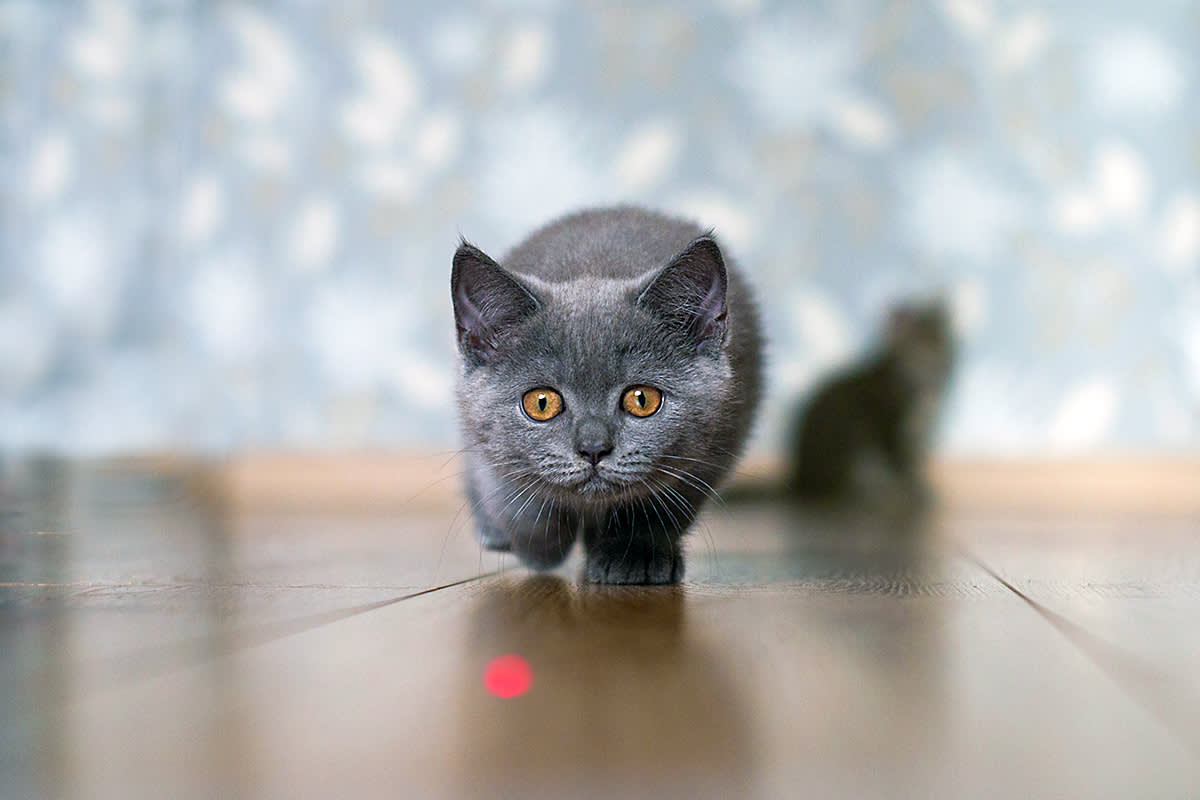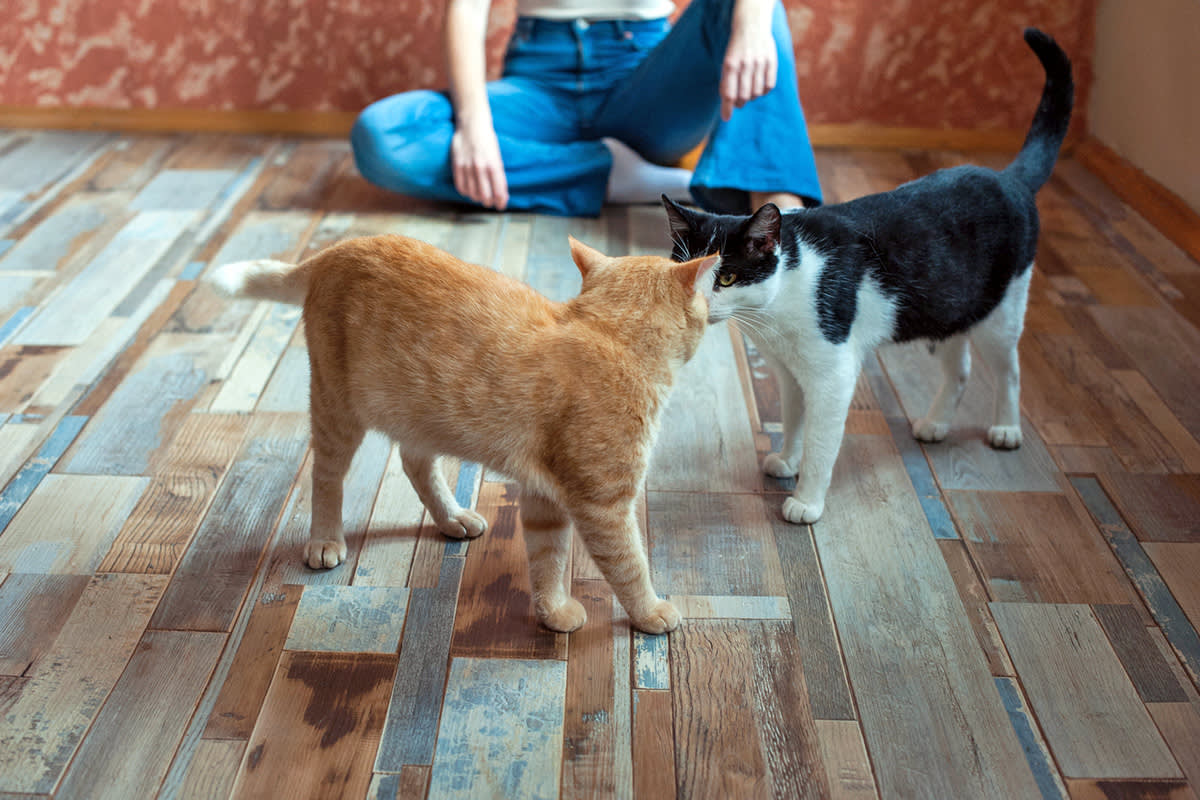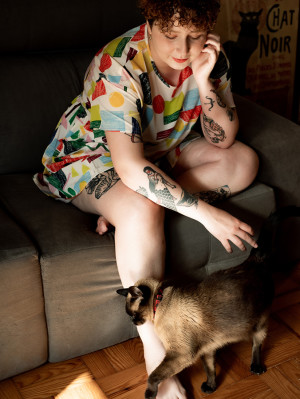11 Ways You’re Annoying Your Cat Without Realizing It
Not everybody loves a dance party.
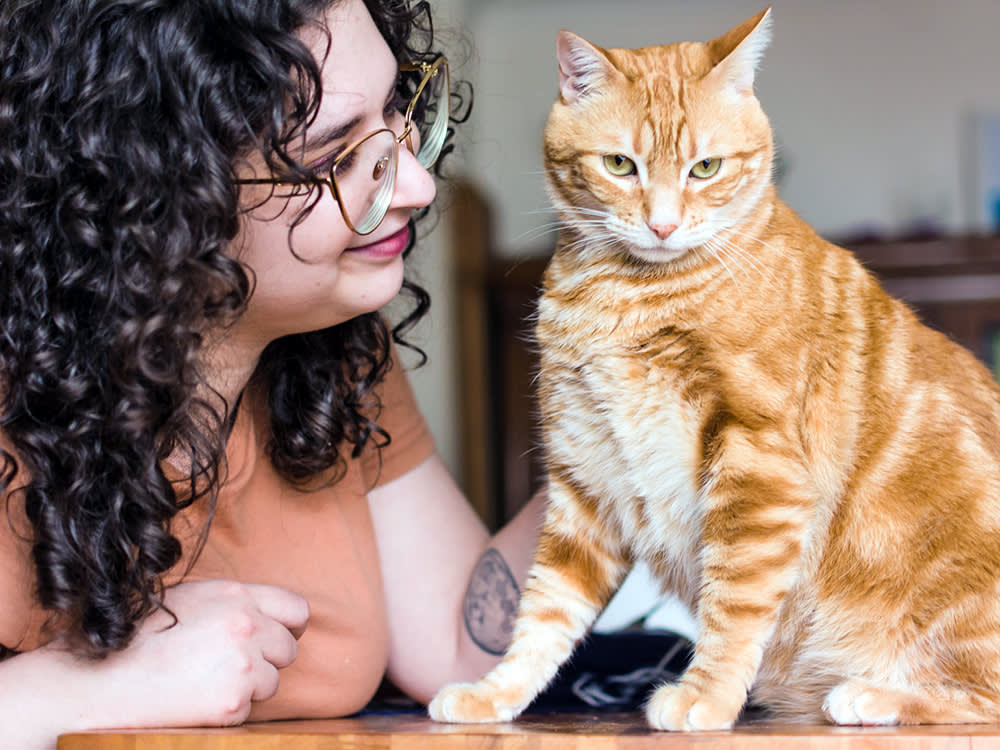
Share Article
Sometimes, you think you’re doing something nice for someone, only to find out that they hate that thing: bringing a bouquet of wildflowers to a person who suffers from allergies, baking brownies for someone who hates chocolate (these people exist!), throwing a surprise party for a friend who turns out to hate surprises (who knew?). You meant well, but these things happen sometimes. Humans can be unpredictable. When it comes to your cat, however, it may be a little easier to avoid annoying them.
“Just like humans, cats have individual preferences — especially when it comes to touch and sensory experiences,” says certified cat behavior expert Heather Alvey, owner of Felidae Behavior Consultingopens in new tab. “What might feel benign to us can be quite unpleasant or even stressful for them.”
I asked Alvey, along with a few veterinarians, what our cats’ top pet peeves would be, if they could speak. Here’s what they told me.
1. Not cleaning their litter boxes often enough
Scooping out the cat box isn’t anyone’s favorite chore, but not doing it on the daily is the number-one way to annoy your cat, says veterinarian Dr. Preston Turanoopens in new tab, a consultant for ASPCA Pet Health Insuranceopens in new tab. Alvey concurs: “Regular scooping is essential for [a cat’s] physical and emotional wellbeing.”

If you neglect this task, you may find yourself faced with an even messier one. “Not cleaning the box increases the chance your cat will find somewhere else around the house to go potty,” Dr. Turano warns. Truly hate scooping the litter box? Try an automatic oneopens in new tab. The Litter-Robot 4 has revolutionized my (and my cats’) lives.
2. Messing around with their tails
One of my cats loves to flick his tail in my face (or dip it into my tea when we’re watching TV on the couch). When he does this, I gently redirect that fluffy appendage — but talking to veterinarian Dr. Anna Fosteropens in new tab, an advisor for Whiskeropens in new tab, made me realize I need to tread carefully when it comes to my cats’ tails. “The tail is an extension of their spine, and a sensitive communication tool,” she explains. “Tugging, grabbing, or swatting at it can feel invasive or even threatening.”
So, should cat parents steer clear of their cats’ butt area, as a rule? “While some cats may tolerate it if you're petting them, most see it as overstimulation or a loss of control,” Dr. Foster says. “It’s best to avoid touching their tails altogether and stick to areas like the cheeks or chin if you’re looking to bond.”
3. Switching up their food
Most likely, you wouldn’t love eating the same thing for every meal, every day — but Dr. Jennifer Sperryopens in new tab and veterinary advisor at Pets Plus Usopens in new tab, says that your cat probably does. “Many cats prefer routine,” she says, explaining why varying your cat’s diet may annoy them. “Changing their food flavor and texture frequently might not be the culinary adventure you hope it will be.” She also points out that introducing a new type of cat food can upset your cat’s stomach, as well as being an affront to what she calls “their choosy nature.”
4. Showering them with love
Cats are cute — that’s a big reason we put up with their weird, and sometimes disgusting, behavior. But as tempting as it is to cuddle them constantly, cat parents need to play it cool, Dr. Sperry says. “Cats value their independence and can become irritated if they feel crowded or constantly handled.” She emphasizes cats’ need for personal space. “Many cats prefer attention on their own terms and on their own schedule.”
Alvey agrees, flagging certain spots to watch out for. “Your cat’s belly and paws may be irresistibly cute, but it’s important to prioritize consent before interacting with these sensitive areas. This applies to all forms of handling, including petting, picking up, and giving hugs or kisses.”
5. Wearing perfume or cologne
“Many cat owners underestimate just how sensitive their cats’ senses are,” Alvey says. That includes their sense of smell — which means that spritzing on your favorite perfume could be extremely annoying to your cat. And perfume or cologne aren’t the only culprits: Alvey says strong scents from air fresheners or household cleaners can be “overwhelming — or even harmful.”
If you want to use products with a strong scent, make sure your cat has a well-ventilated place in which to seek refuge. “Cats should always have the option to retreat from anything that is overstimulating or uncomfortable,” Alvey says.
6. Scooping them up
If I had my way, I’d carry my cats around with me all the time; maybe I’d even tuck them into one of the slings I used to carry my kids around in when they were babies. But Dr. Foster says I should put that idea right out of my head: “Many cats are very independent and prefer all four paws on the ground. Being picked up can make them feel vulnerable or trapped, especially if they weren’t expecting it or aren’t used to being handled.”
She says it’s better to let your cat come to you on their own terms and not to overdo it. “For cats who do enjoy [being held], support their body fully, cradling their legs, and limit the amount of time.”
7. Abusing the laser pointer
“Laser toys can be a great way to stimulate your cat’s hunting instincts and provide exercise,” says veterinarian Dr. Victoria Carmella, advisor at Pet Honestyopens in new tab. She reminds cat parents, though, that laser pointers need to be used with care. “Avoid shining the light in your cat’s eyes, and always offer a tangible reward after, such as a treat or a toy they can physically catch. Without this, some cats may feel frustrated or anxious.”
Dr. Foster explains further: “Cats are natural hunters and constantly chasing an invisible target without resolution can leave them amped up, agitated, or even bored. If you use a laser pointer, one tip is to end the session with a toy they can actually catch, like a feather wand or soft plush toy.”
8. Trying to play with them when they’re resting
Imagine you’ve just stretched out on your bed for a little snooze, when someone comes along wanting you to entertain them. (If you live with a human child, you probably don’t have to try very hard to imagine this scenario.) You wouldn’t love it — and neither does your cat. Dr. Turano calls this behavior the second-best way to annoy your cat, after a dirty litter box.
“Look for signs like ears back or flat, tail flicking, and even growling or hissing. This is an indication to stop and give them their space,” he says. “You are pestering your cat while they are trying to rest or don’t want to play.”
9. Adopting another cat
If you only have one cat, you might think that bringing home a companion for them is a nice thing to do. Think again, Sperry says — especially if your cat is full-grown. “Adult cats can be territorial and often prefer solitude. Adding another cat to your home may trigger stress and disrupt their established routine.”
That said, that isn’t always the case. Our family adopted a pair of bonded brother cats during the pandemic, and our older cat, Freddy, adjusted to their presence within a couple of months. The three of them are now fast friends, and they run our home. So, while Freddy may have been annoyed for a while, she eventually got over it.
10. Blasting your music
There’s little I love more than a mid-afternoon dance party. I tear myself away from whatever screen I’m working on, queue up my favorite dance playlist, crank the volume, and go wild in my living room. I may need to tone it down a bit in the future, though, as both Alvey and Dr. Sperry say that loud music can be upsetting to cats, whose senses are more delicate than ours. My dancing, too, could apparently be distressing to my beloved pets: “Loud noises and sudden movements: These can startle cats and make them feel unsafe,” Dr. Perry says. Noted!
11. Failing to read their cues
If you’re not sure what annoys your cat, the best way to figure it out is to tune in to what they’re telling you through their behavior. “Every cat has different preferences,” Dr. Carmella says. For example: “While some cats enjoy cuddling and being carried, others find it stressful. Pay close attention to their reactions. If your cat is clawing their way away or avoids you afterward, they’re asking you to respect their boundaries.”
Bottom line? Even though your cat can’t talk, they have ways of letting you know what they don’t like. “Most cats are adept at using their body language (and sometimes their teeth) to communicate where their ‘yes’ and ‘no’ zones are for touching and petting,” Dr. Sperry says.
Alvey adds: “It’s essential for cat guardians to remember that every cat is an individual, and their needs and desires are both normal and worthy of respect.”
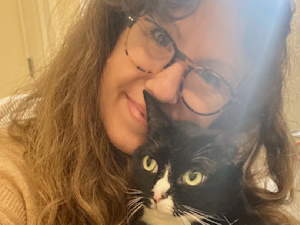
Elizabeth Laura Nelson
Elizabeth Laura Nelson is a writer and editor based in Brooklyn, New York, whose work has appeared in The New York Times, Jenny, Best Life, YourTango, Elite Daily, and more. She focuses her work on relationships, health and wellness, midlife, and lifestyle. As a child, Elizabeth was scared of cats (claws and teeth, yikes) but she has since gotten over her fear and now shares her home with three sweet and gentle feline companions who make life better (and cuddlier) every day.
Related articles
Why Does Your Cat Rub Against Your Legs?
And what they’re trying to tell you when they do.
What Is “Mlemming” and Why Do Dogs and Cats Do It?
It may give you insight into your pet's health and wellbeing.
![a tattooed person with curly red hair on a couch pets a brown and black cat]()
Your Cat Can Tell When You’re Stressed, Study Says
It’s all in their noses.
Why Does My Cat Make “Stink Face”: Understanding the Flehmen Response
It’s definitely not because you disgust them.
Why Do Cats Lay On Your Chest?
That’s quite the cuddle.
Why Do Cats Tuck Their Paws? The Cat Loaf Explained
It’s not just cute—it can be a sign of something more.
